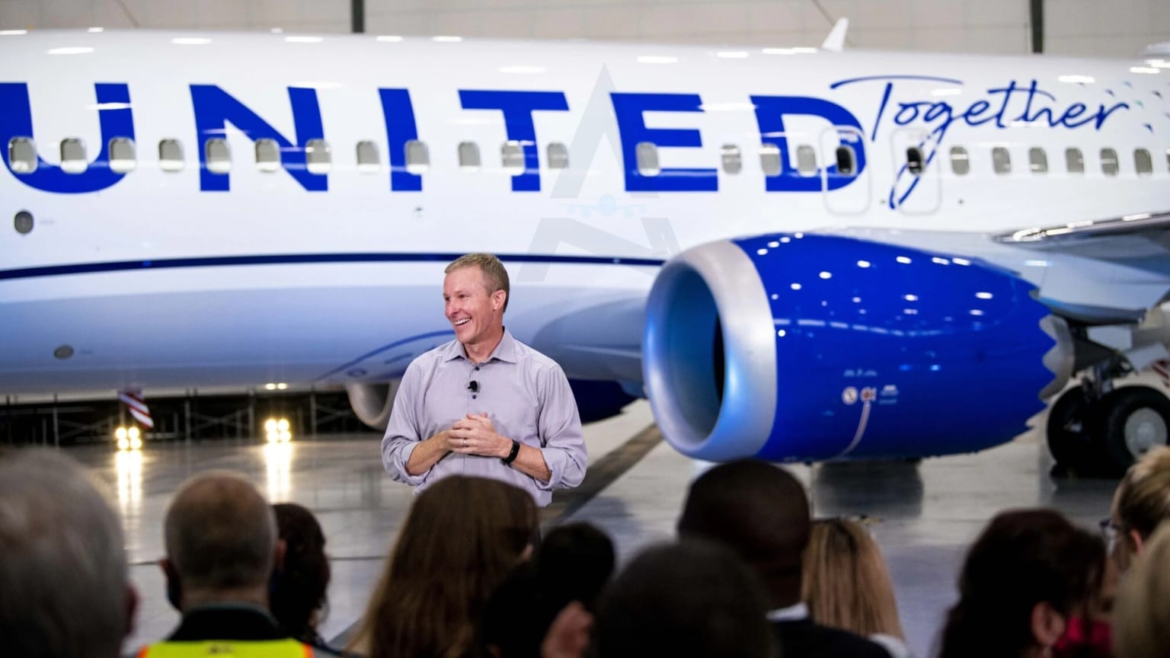United Airlines (UA) CEO Scott Kirby is leading a significant transformation in the airline’s management strategy by placing a strong emphasis on customer experience over the traditional focus on strict cost control. This shift marks a notable departure from his prior roles at US Airways and American Airlines (AA), where Kirby was recognized for his spreadsheet-driven, financial-centric approach to airline operations.
Under Kirby’s leadership, United Airlines has redefined its operational priorities, focusing on enhancing the passenger experience as a key driver of business success. Recognizing that customer satisfaction plays a crucial role in the airline’s long-term viability, Kirby has implemented various initiatives aimed at improving service quality, comfort, and overall travel experience for United’s customers.
This customer-first approach has led to significant investments in fleet upgrades, enhanced in-flight services, and improvements in customer service practices. United has introduced new routes, modernized aircraft, and expanded amenities to provide passengers with a more enjoyable and convenient travel experience. By prioritizing customer needs, Kirby aims to foster brand loyalty and drive higher customer retention rates, ultimately benefiting the airline’s bottom line.
The shift in strategy is reflected in United’s impressive performance metrics under Kirby’s leadership. The airline has reported strong financial results, with increased revenues and higher passenger satisfaction scores. This success is attributed to Kirby’s commitment to balancing financial performance with a focus on customer-centric initiatives. He understands that a satisfied customer is more likely to choose United Airlines for their future travel needs, leading to sustainable growth and profitability.
Kirby’s transformation of United Airlines also includes a renewed commitment to transparency and communication. He has emphasized the importance of keeping customers informed about their travel experiences, including delays, cancellations, and changes in itineraries. By fostering open lines of communication, United seeks to build trust with its passengers and enhance their overall travel experience.
Additionally, Kirby’s leadership style encourages a culture of collaboration within the organization. He believes that empowering employees to prioritize customer service will yield positive results for both the airline and its passengers. This approach not only improves morale among staff but also translates into a better customer experience, as employees feel motivated to go above and beyond in their service.
As the airline industry continues to navigate the challenges posed by the ongoing recovery from the pandemic, Kirby’s strategic shift towards customer experience sets United Airlines apart from its competitors. By prioritizing customer satisfaction alongside operational efficiency, United is positioning itself for long-term success in a highly competitive market.
In summary, Scott Kirby’s leadership at United Airlines represents a transformative shift in the airline’s management philosophy. By emphasizing customer experience over strict cost control, he is reshaping United into a more customer-centric airline, resulting in improved financial performance and increased passenger loyalty. As United continues to evolve under Kirby’s guidance, its commitment to enhancing the customer journey will be pivotal in establishing a strong competitive edge in the aviation industry.

